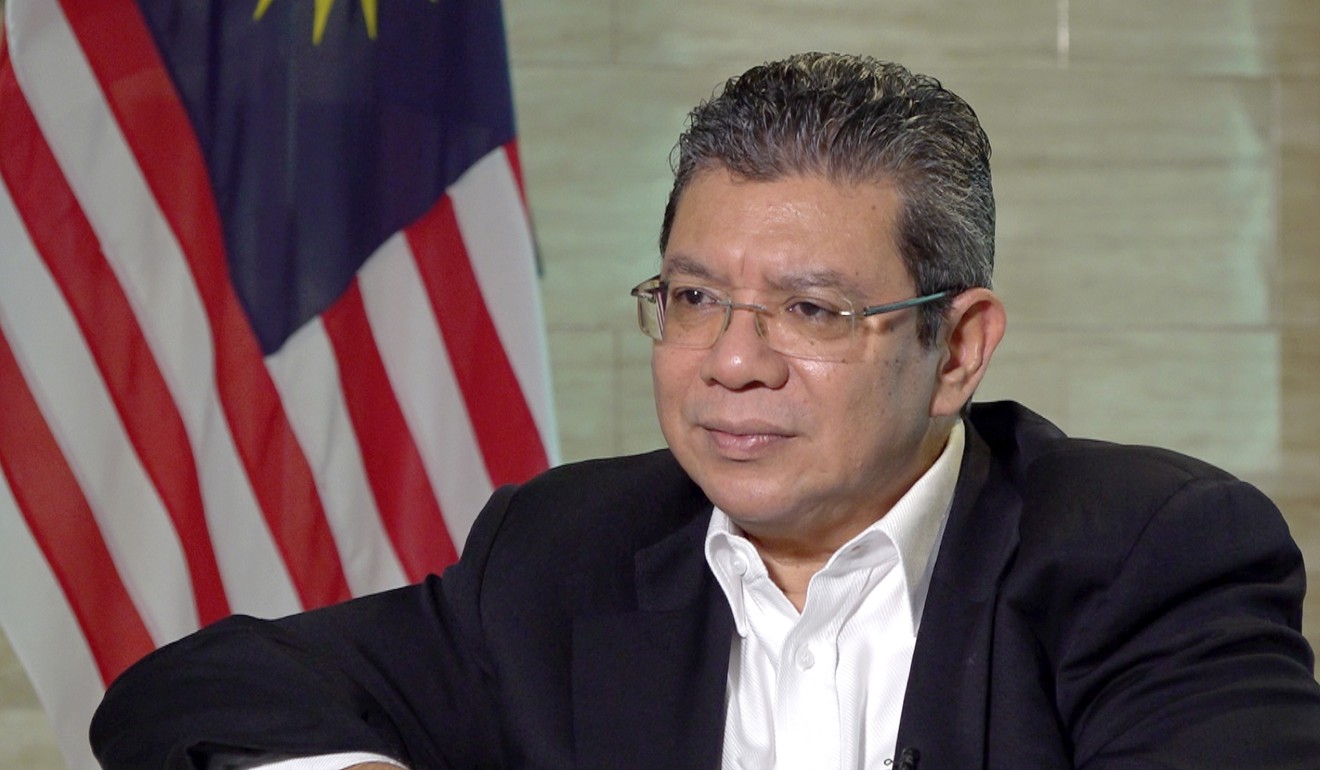
South China Sea ‘likely to top agenda’ when Malaysian foreign minister visits Beijing next week
- Saifuddin Abdullah’s trip comes a week after Malaysian Prime Minister Mahathir Mohamad called for restraint among claimants to disputed waters during visit to Hanoi
- ‘Balanced’ Kuala Lumpur has played an important role in mediating on such issues, academic says
Saifuddin Abdullah will be in China from Monday to Saturday at the invitation of his Chinese counterpart, Wang Yi, the foreign ministry said on Thursday.
The trip comes at a time of simmering tensions between China and several of its neighbours over the disputed waterway. Beijing regards almost all of the sea as its sovereign territory, but the Philippines, Vietnam, Malaysia, Taiwan and Brunei hold overlapping claims.

In Manila, anti-China protesters took to the streets in June after a Chinese vessel struck and sank a Philippine fishing boat, and following repeated passages by Chinese warships through waters claimed by the Southeast Asian nation.
Beijing used similar tactics off the Malaysian coast early last month.

Xu Liping, a senior research fellow at the National Institute of International Strategy under the Chinese Academy of Social Sciences, said that despite the tensions, relations between Beijing and Kuala Lumpur remained friendly and that fact might be useful in advancing talks on a code of conduct for the South China Sea.
China also needed Malaysia’s support during its trade war with the United States and as it sought to conclude negotiations on the Regional Comprehensive Economic Partnership, a proposed free-trade agreement between 16 Asia-Pacific countries.
“Malaysia, as a country that is more balanced and less radical [on South China Sea issues], has played an important role in mediating,” Xu said.
On a visit to Hanoi last week, Malaysian Prime Minister Mahathir Mohamad called for restraint among all claimants in the disputed waterway.
In a joint statement with his Vietnam counterpart, Nguyen Xuan Phuc, he urged all parties to have “full respect for legal and diplomatic processes, without resorting to threats or the use of force”.
Speaking last month, Saifuddin repeated the Malaysian leader’s earlier call for major powers to limit the use of military vessels in the region.
“We should lessen the presence of warships in the disputed waters to ensure peace and stability, safety and freedom of navigation in the South China Sea,” the foreign minister said.

